Abstract
OBJECTIVE: To identify what changes should be made in the University of British Columbia's rural family practice training program curriculum to help graduates be better prepared to practice. DESIGN: Two cross-sectional surveys via mailed questionnaires: one designed to measure physicians' self-reported preparedness for practice and the other to measure the importance of various rural family medicine components. SETTING: Rural training program graduates and preceptors representing rural communities in British Columbia. PARTICIPANTS: Thirty-nine graduates of the rural training program between 1982 and 1991 and 14 community-based rural training program preceptors representing eight communities throughout the province participated in this study. MAIN OUTCOME MEASURES: Percentage of graduates of the rural program who reported themselves to be underprepared on each family practice item and preceptors' mean scores for the attributed importance to rural practice of each item on this questionnaire. RESULTS: A list of curriculum areas most in need of reform was created. This list included trauma, counseling skills, radiology, vacuum extraction, fracture care, exercising community leadership, cost-effective use of diagnostic tests, using community health resources, obtaining hospital privileges, ophthalmology, dermatology, otolaryngology, personal and professional growth, relationships with other physicians, and personnel issues. CONCLUSIONS: Using both the level of graduates' self-reported underpreparedness and the attributed importance of elements of rural practice, as indicated by the preceptor survey, we developed a list of the areas of the rural training program curriculum most in need of reform.
Full text
PDF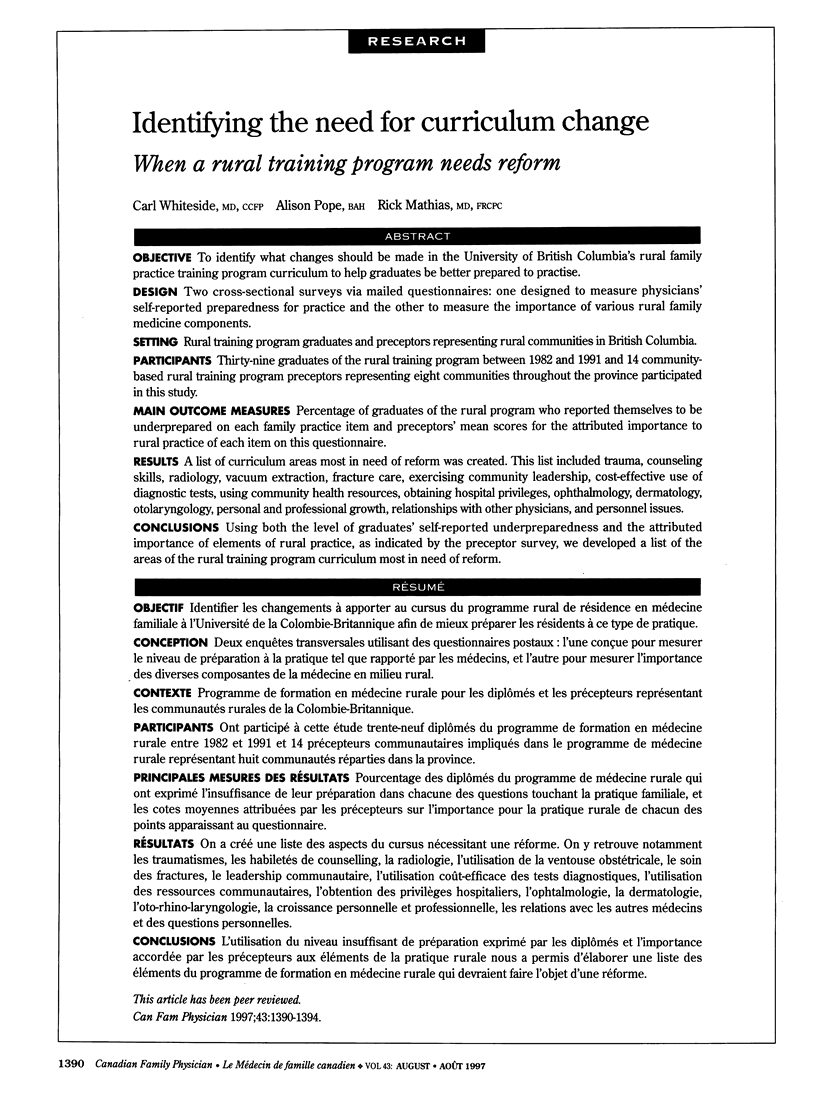
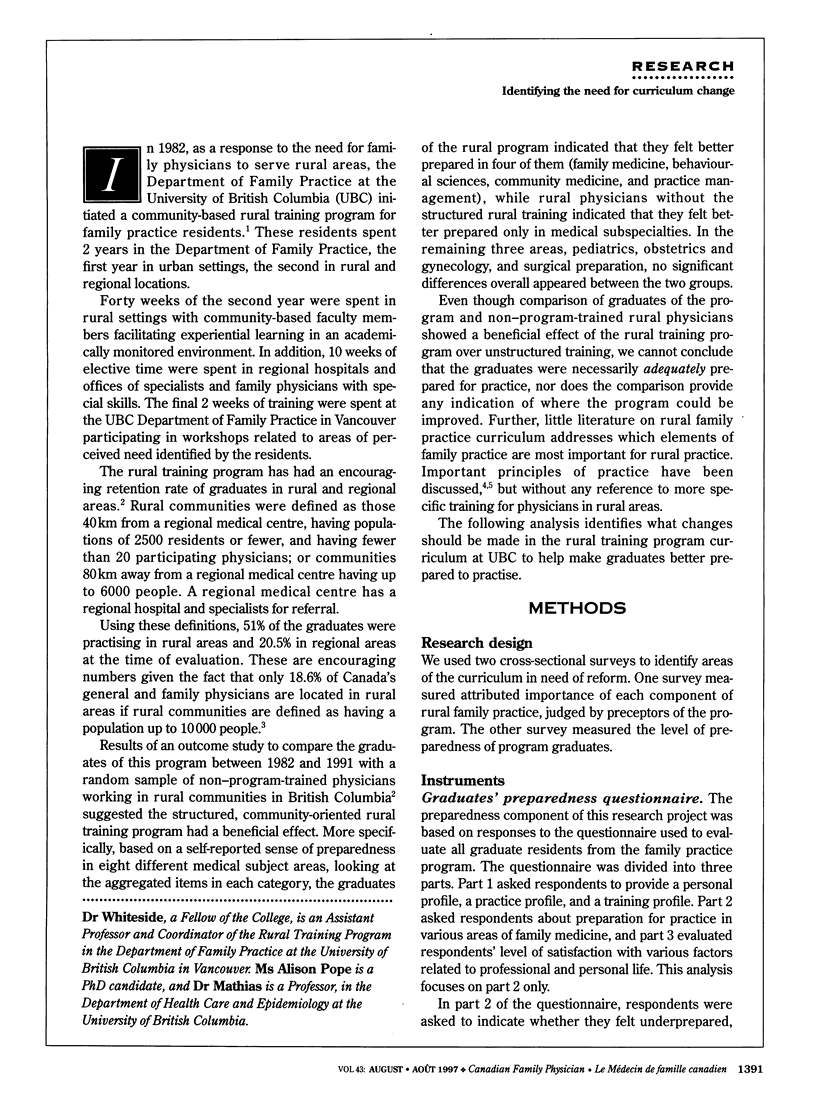
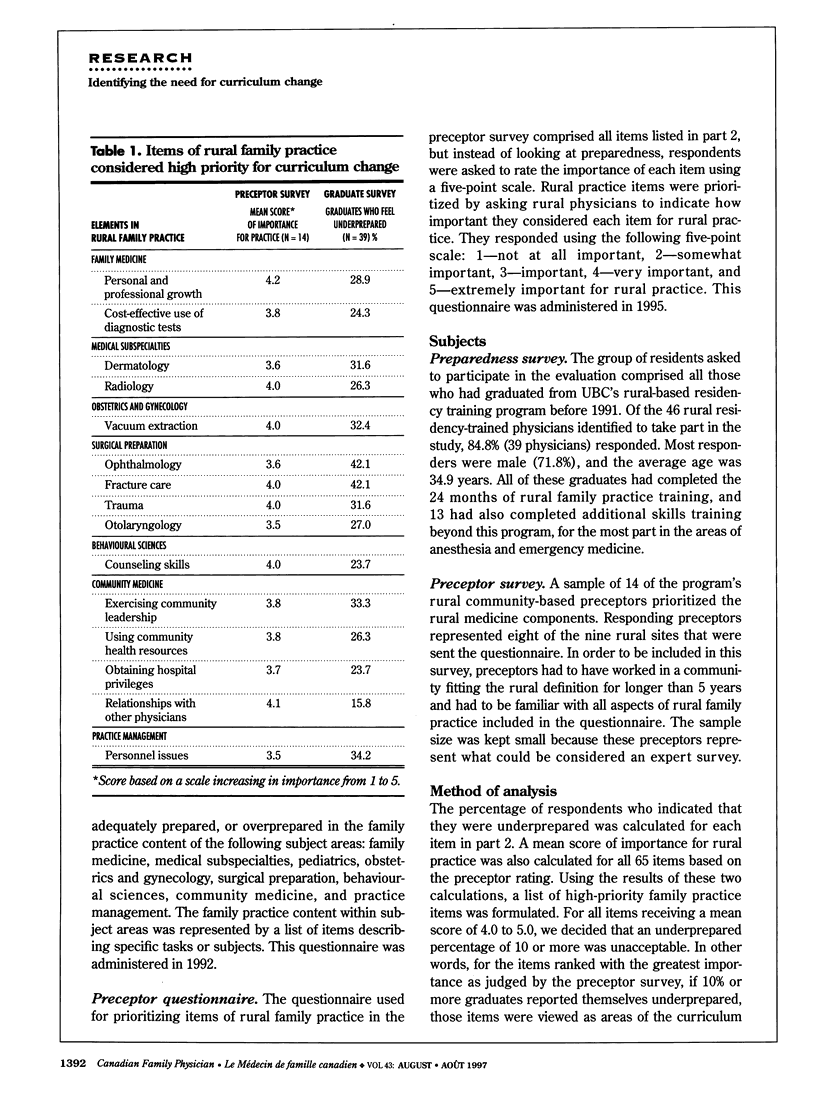
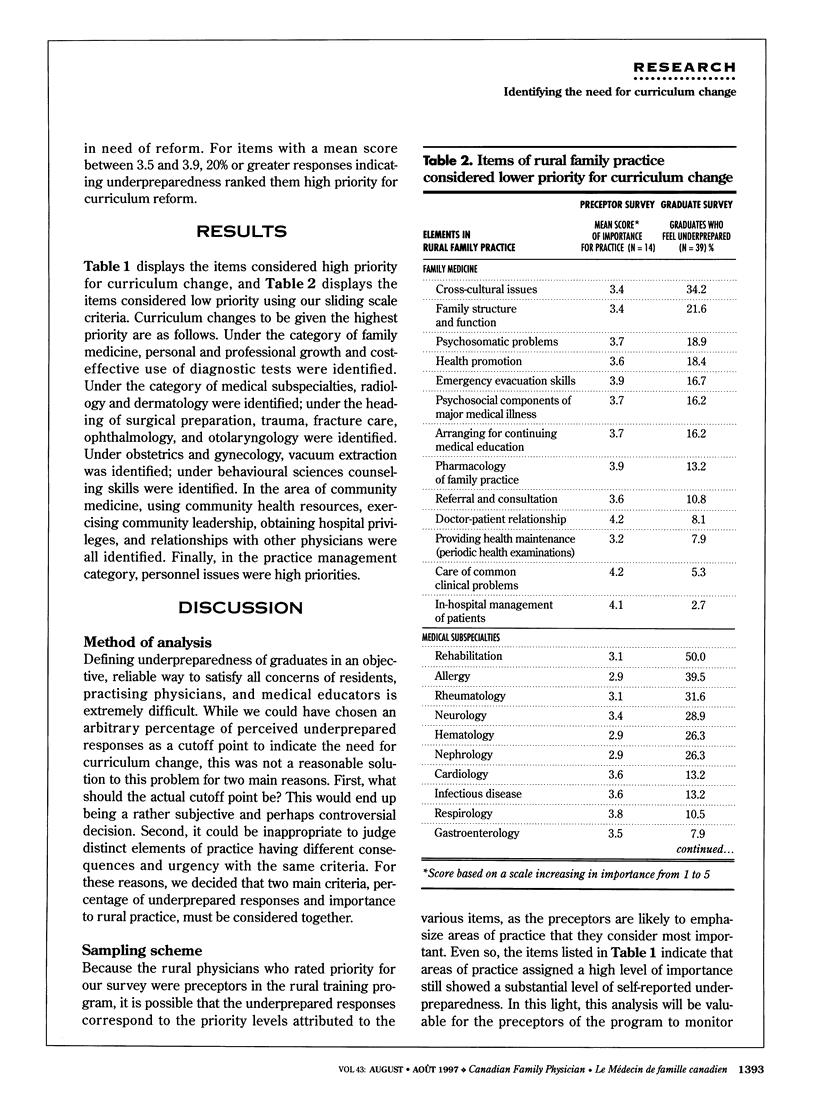
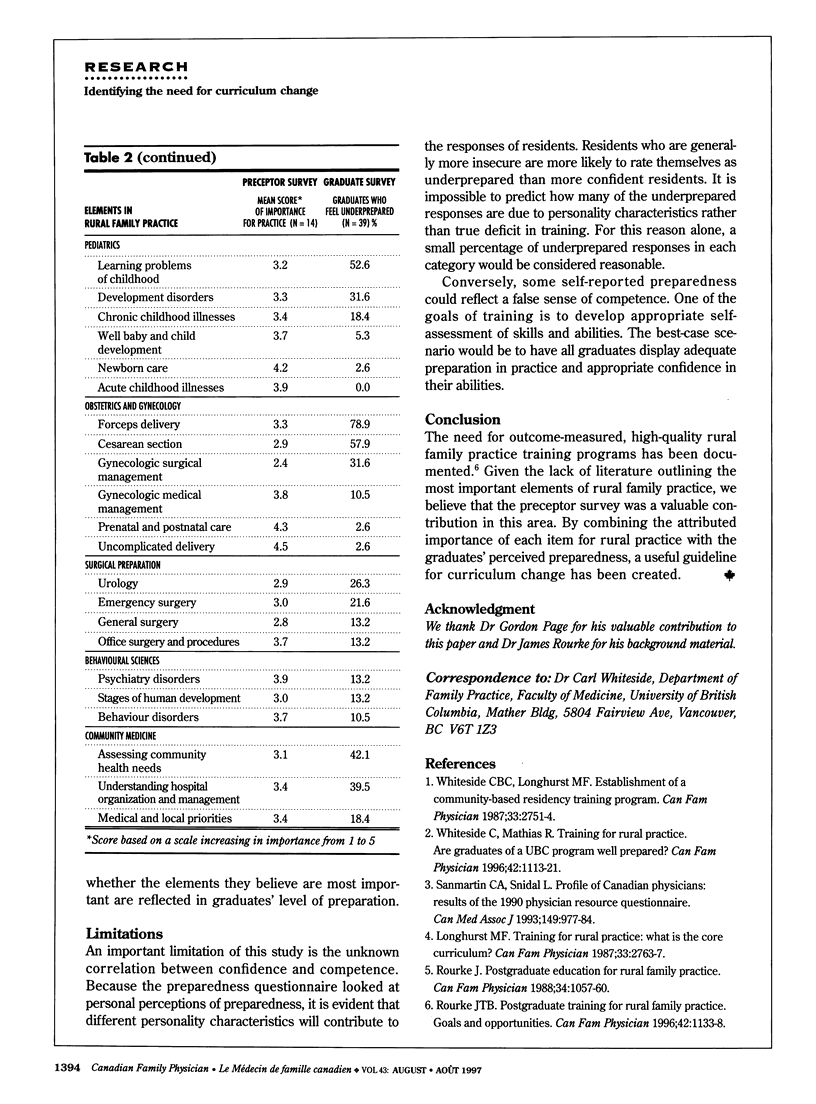
Selected References
These references are in PubMed. This may not be the complete list of references from this article.
- Longhurst M. F. Training for Rural Practice: What is Core Curriculum? Can Fam Physician. 1987 Dec;33:2763–2767. [PMC free article] [PubMed] [Google Scholar]
- Rourke J. T. Postgraduate training for rural family practice. Goals and opportunities. Can Fam Physician. 1996 Jun;42:1133–1138. [PMC free article] [PubMed] [Google Scholar]
- Rourke J. Postgrad education for rural family practice. Can Fam Physician. 1988 May;34:1057–1060. [PMC free article] [PubMed] [Google Scholar]
- Sanmartin C. A., Snidal L. Profile of Canadian physicians: results of the 1990 Physician Resource Questionnaire. CMAJ. 1993 Oct 1;149(7):977–984. [PMC free article] [PubMed] [Google Scholar]
- Whiteside C. B., Longhurst M. F. Establishment of a community-based residency training program. Can Fam Physician. 1987 Dec;33:2751–2754. [PMC free article] [PubMed] [Google Scholar]
- Whiteside C., Mathias R. Training for rural practice. Are graduates of a UBC program well prepared? Can Fam Physician. 1996 Jun;42:1113–1121. [PMC free article] [PubMed] [Google Scholar]


